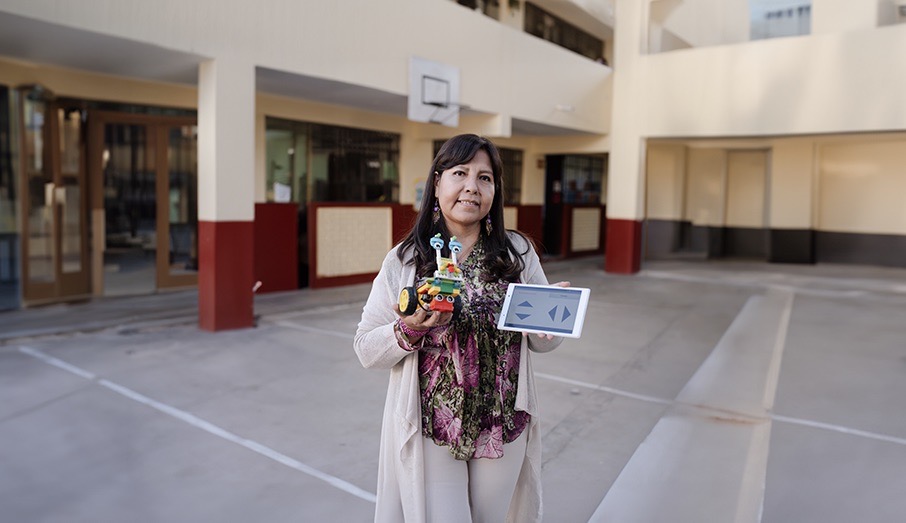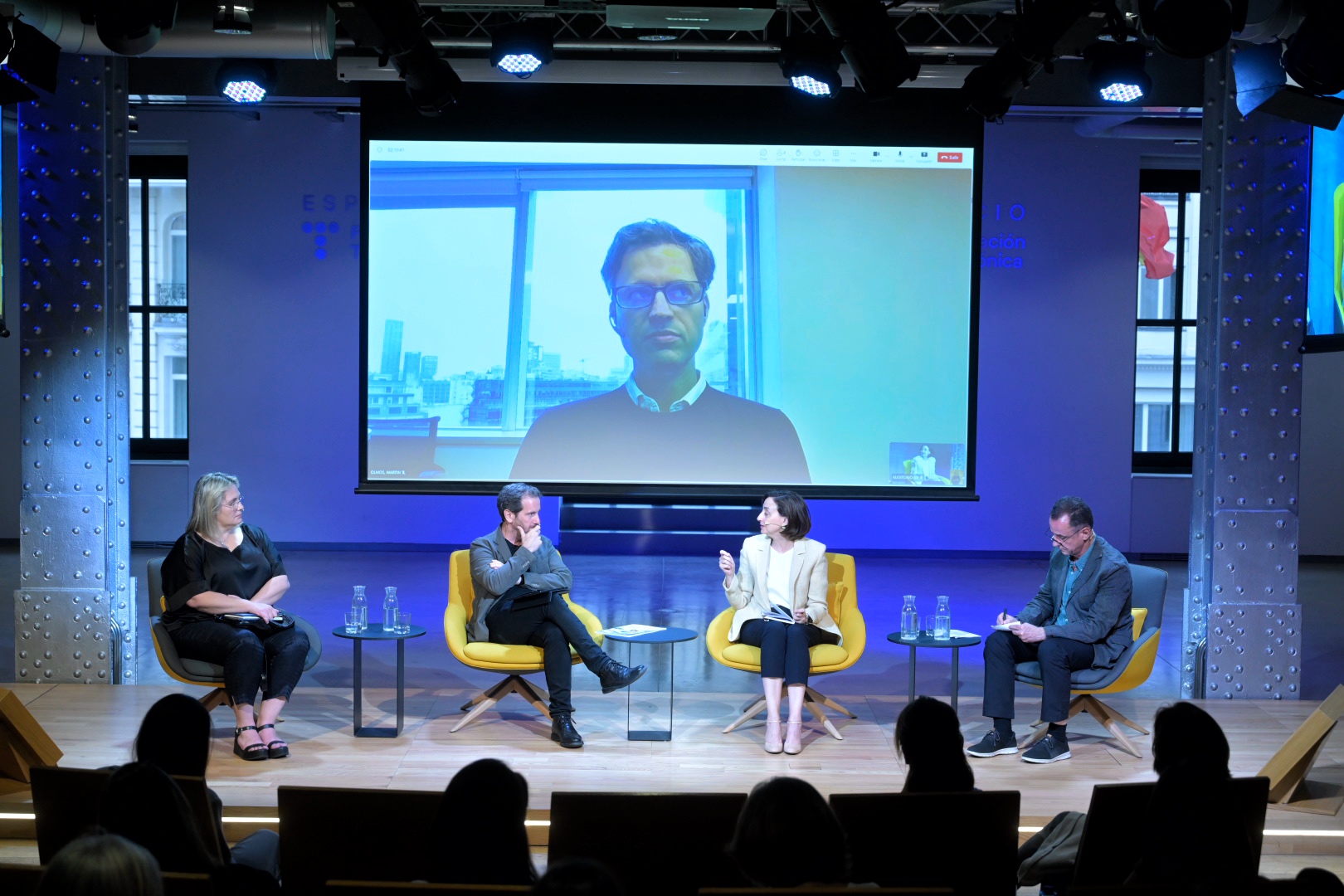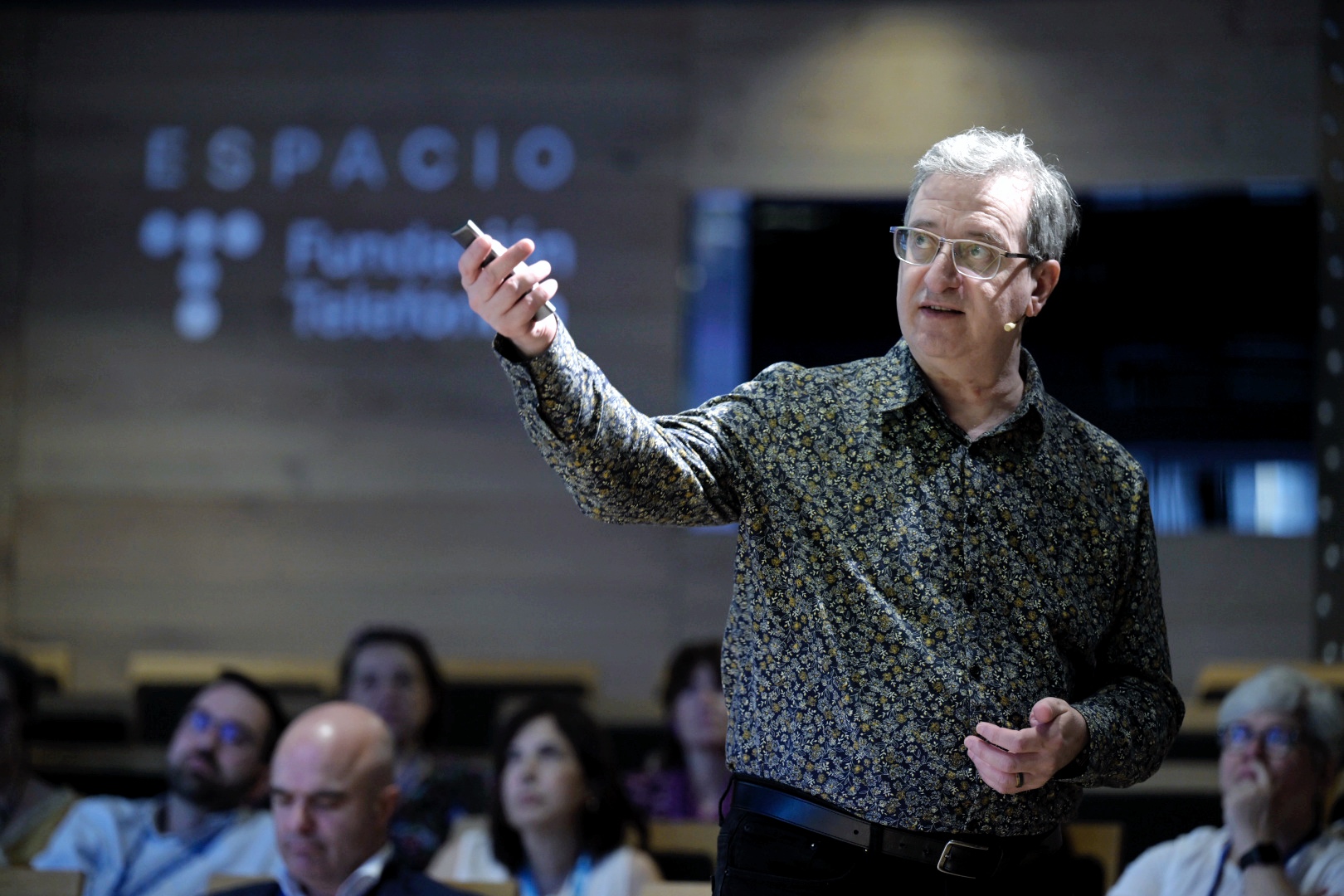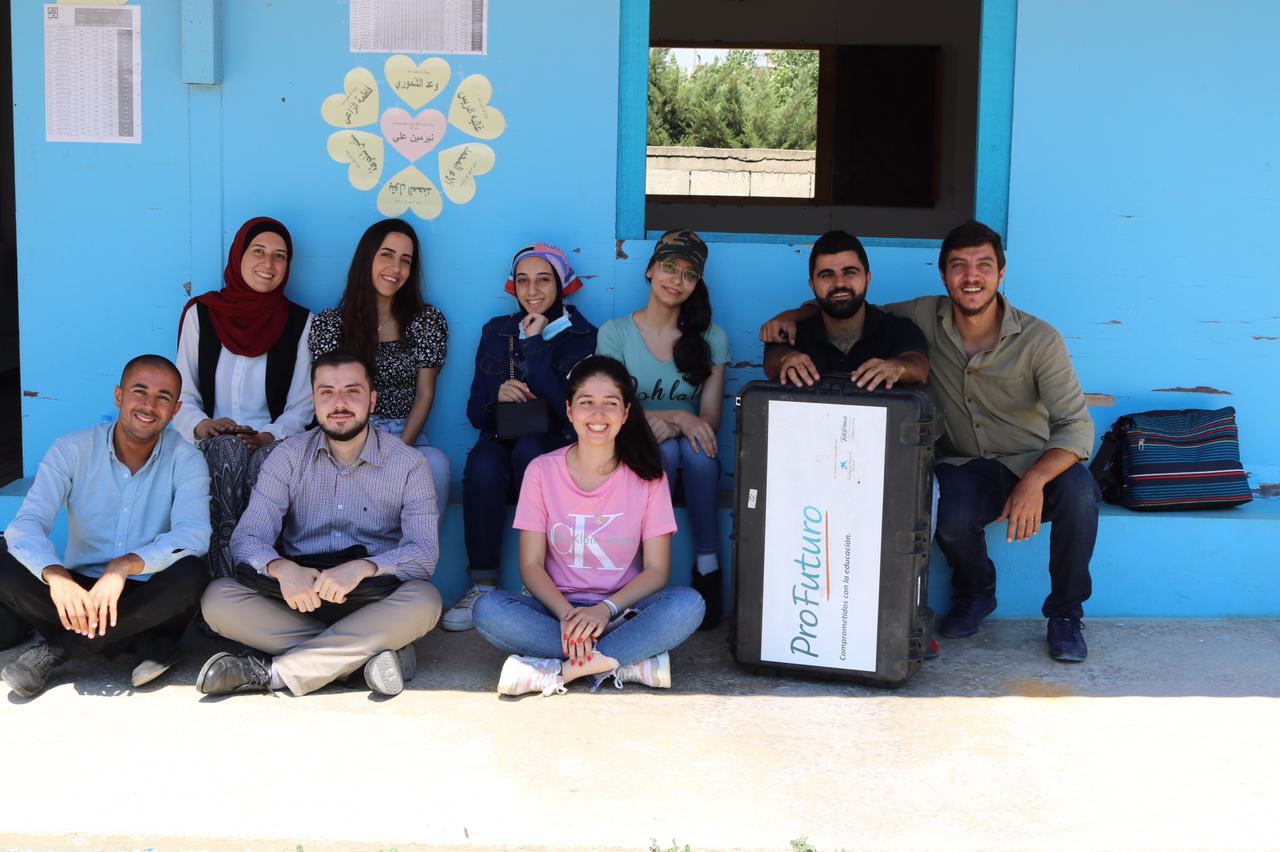“Women in STEM disciplines enhance the diversity of ideas and perspectives, promote gender equity and strengthen creative and effective problem-solving skills.” Maria Teresa, ProFuturo teacher
International Women’s Day is celebrated on 8 March. It’s a date when women from different continents, cultures and ethnicities come together to celebrate no less than eight decades of struggle for equality, equity and justice. At ProFuturo, a programme promoted by Telefónica Foundation and the “la Caixa” Foundation, we work on reducing the educational, digital and gender gaps in education, innovation and technology in vulnerable contexts throughout Latin America, the Caribbean, Africa and Asia.
Our #ProFuturoStories are the best evidence of the impact of our education programme. They represent a future where children have equitable access to quality education which forms the basis for their personal development and that of their communities.
STEM subjects (Science, Technology, Engineering and Mathematics) prepare people to face the challenges of the 21st century. It is a reality that this field is predominantly led by the male gender. The PISA report (2018) warned of a worrying trend that showed while girls lead in reading skills, boys excel in science and mathematics, outperforming the OECD average in virtually all countries participating in the study. From early school years (OECD, 2019) to professional life, this gender gap has contributed to female under-representation in STEM fields.
Today, for #WomensDay, let us share some stories of how our intervention is making a difference. From stories about the winners of our most recent edition of #hack4edu, the largest technological-educational hackathon in Ibero-America, in which the winning senior group are 5 women who are rewriting their future by learning how to develop artificial intelligence to the case of Elizabeth, a Peruvian teacher who transformed her life with STEM disciplines. Initially, she needed help using the projector in the classroom and today, she is a teacher of pedagogical innovation, dedicated to sharing her knowledge with children and other teachers, showing the transformative power of educational innovation with technology, and many more inspiring stories.
Today we want to tell you about Maria Teresa Cornejo, a ProFuturo teacher, recognised as a ‘female pioneer of AI in Peru’. Maria works tirelessly to empower and enhance women’s representation in STEM vocations, both locally and nationally.
Learn about her story…
Maria Teresa, a ProFuturo story
“Since I was very young, I have always liked to help others. I think I was born with the heart of a teacher. At the age of 7 or 8, I was already pretending to be a teacher to my little brothers and sisters and my dolls”, says Maria Teresa, a Peruvian teacher who is leaving a significant mark in Peruvian schools by bringing artificial intelligence (AI) to tools that her students themselves train and use to learn.
Maria Teresa has been involved in education from her childhood. Born into a family of teachers, the connection to teaching was evident from an early age. As she grew older, her vocation grew stronger. At school she used to organise classes to teach her classmates chemistry, a challenging subject, making sure that none of them failed. However, the real impetus for her to embrace the teaching profession was seeing so many children in vulnerable situations in need of urgent attention.
In 2022, she had her first contact with generative artificial intelligence (AI), thanks to a dialogue on ChatGPT. This encounter not only marked a major milestone in her life, but also motivated her to immerse herself in research on how AI achieves its ability to learn and interact autonomously.
Understanding its functions and scope, and amazed by the support this tool provided to her classes, she decided to integrate it into her laboratories with her students and developed a digital transformation approach for primary schools that would transform their academic dynamics in Arequipa, Peru.
Listen to the explanation of their approach here:
It consists of workshops in which children and teachers gradually learn from what an algorithm is and its characteristics. They solve challenges with different graphical programming languages, generate code, program electronic cards and finally, after developing levels of abstraction and algorithmic thinking, they can train artificial intelligence models using machine learning, biometrics and other techniques to create useful and functional resources with artificial intelligence.”
Maria Teresa’s goal goes beyond the classroom; she dreams of educating the new thinkers of the future and expanding her programme to more children around the world. Her vision of training technology producers rather than consumers implies a fundamental change in the relationship and stereotypes people have with technology. It’s especially relevant for those who think that “it is a male-led discipline.”
Since it was started, special emphasis has been placed on teaching STEM disciplines at young ages and in an equitable manner. For her, the balance contributes to global progress in critical areas such as technology, medicine and sustainable development.
Listen to her testimony on the importance of women’s representation in the STEM world.
Maria Teresa’s story is one to be admired. She is part of a team of outstanding teachers in Peru, who actively contribute to enriching the virtual communities and spreading ProFuturo’s educational programme. Her philosophy of life as a teacher passionate about integrating technology in education focuses on excellence, perseverance and contributing to female talent in STEM.
Unlocking the potential
Stories like Maria Teresa’s are abundant around the world. Today, we share this one to highlight the significance of these narratives and highlight how women are making a transformative impact on the world through the power of education. On this International Women’s Day, we link up with UNESCO to underline the importance of investing in girls’ education. Beyond being a human rights issue, investing in these girls is equivalent to investing in society as a whole.
Education is a powerful catalyst for transformation
#EducatingTransforms
Do you want to know more about ProFuturo’s commitment to education?
Further information available at: https://profuturo.education/
X: @ProFuturo_
IG: @profuturo_
FB: @ProFuturoEducation
YT: ProFuturo
LK: ProFuturoEducation






